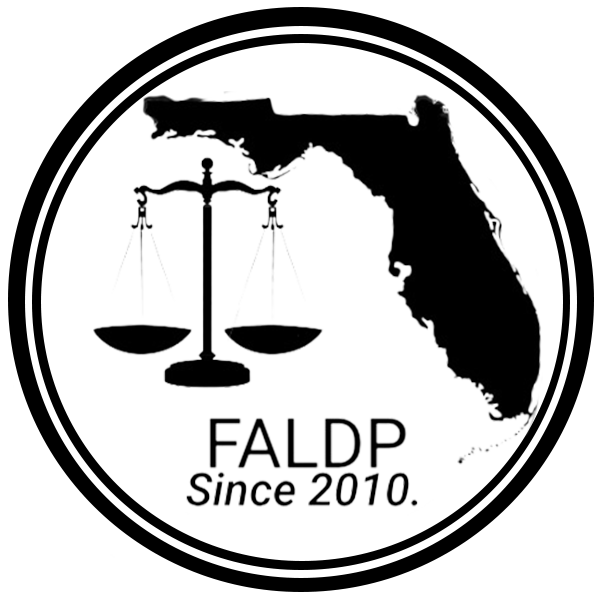800-515-0496
Revocable Living Trust

The operative word is "revocable", which means you make the decisions. The trust maker can revoke the trust at any time during his or her life time. You completely control when and if you create, change, or dissolve your trust. You are in charge. A Revocable Living Trust is a legal document that you design to include your instructions for what you want to happen to your assets when you die.
A living trust is similar to a last will and testament, except a Living Trust accomplishes much more. The reason most people create a will is to make sure that their assets are left to their designated heirs. The problem with a will, however, is that your heirs are not entitled to take possession of the property left to them until a probate judge orders it.
So, in a will, you leave property to your heirs, and your heirs will
eventually take possession of it, but not until probate is complete.
Probate can take anywhere from six months to two years or more. Also,
except for the smallest of estates, an attorney is required. So
attorneys' fees must be paid from the estate's assets, before any money
is distributed to the heirs. In many cases, the personal representative
also receives a share of the estate's assets, (in Florida up to 3% of
the entire estate) before the heirs receive anything. With a Living
Trust you avoid probate.
How Does a Living Trust Avoid Probate?
When you set up a Revocable Living Trust, you transfer assets from your individual name to the name of your Trust. In essence you move your property from one pocket to another. For example, Jane Jones transfers the ownership of her home from Jane Jones to the Jane Jones Living Trust. Even after you transfer your real property into the name of your living trust you remain in complete control. When you create your Trust you name yourself as Trustee. However, you no longer personally own the property -- the trust owns it. There is no property for the courts to disburse when you die. The trust cannot die. The only way that the trust ceases to exist is if you, the Trustee, decides to dissolve it.
Retain Control of Your Assets
You can do anything you could do before - including buying, selling, renting, and improving your real property. In some cases, however, transferring your homesteaded real property into a living trust may affect your homestead rights. You can change or cancel your Trust whenever you like (that's why it's called a revocable trust). The IRS considers putting assets in a Revocable Living Trust to be a "non-event" because you can take them out at any time. Nothing changes but the names on the titles. It generally makes no difference if there is an existing mortgage on a property. The mortgage doesn't change, only the deed changes.
How Does a Living Trust Work?
When you set up a Living Trust, you are the Trustmaker, Trustee and Trustor, all rolled into one. If you are married, you and your spouse can be Co-Trustmakers, Co-Trustees, and Co-Trustors. When setting up your Living Trust you name one or more persons to be your Successor Trustee. The Successor Trustee become the Trustee when you die or become incapacitated. In effect, the Successor Trustee "steps into your shoes".
What Happens if I Become Incapacitated?
If you have named someone else as your Trustee or to be a Co-Trustee
with you (for example,your spouse or a family member), they will
continue to manage your financial affairs according
to your Trust's instructions for as long as necessary. If you recover,
you automatically resume control. If you are the only Trustee or your
Co-Trustee is unable to act (for example, if your
spouse is also incapacitated or has died), your hand-picked Successor
Trustee(s) will step in and act for you. That's how you keep control
within Your family.When you recover, you can take back control of your trust. A Last Will and Testament does not make any provision for incapacity, this is just one of the advantages of a Living Trust.
What Happens When I Die?
Your Trustee or Co-Trustee essentially has the same duties as a Personal Representative. He/she collects any income or benefits, pays your remaining debts, sees that tax returns are filed, and distributes assets according to your Trust's instructions. All of this can be done efficiently and privately - with no court interference.
Successor Trustees can be individuals (your adult children, other relatives, or trusted friends) or a Corporate Trustee, such as a bank or trust company. If you choose an individual, you should name more than one in case your first choice is unavailable or unable to act. You can name two or more to act together.
A Trust is a binding legal contract. According to Florida law, Trustees
have a legal duty to follow your Trust's instructions and act in a
prudent manner at all times for the benefit of your
Beneficiaries. If your Successor Trustee were to abuse his
duties by not following your instructions, he could be held liable.
Funding the Trust
"Funding the Trust" What in the world does that mean?
Funding the trust simply means putting assets into the name of the trust. If you have a trust that is not funded, also called a "broke" trust, you literally have nothing but a stack of worthless papers. The choices as to which assets should be put into the name of the trust is based on individual circumstances. For example, whether it is most advantageous to put a retirement account into a living trust depends on several factors; and consumers are best advised to consult with their employer's human resources department; insurance agent; or CPA.
It is beyond the scope of document preparation services to assist with funding a living trust. A document preparer may prepare living trust documents according to your written instructions, using a forms template, and may not draft a trust for you.
Medicaid Planning
Only attorneys and financial planners may engage in Medicaid planning. Likewise attorneys and financial planners may draft a personal services contract in conjunction with a Medicaid plan. The following was published in the Florida Bar News in March 2015.
“Medicaid planning involves: (1) the assessment of all facts relevant to a client’s situation, including personal, financial, familial, and historical; (2) application of those particular facts to the laws governing Medicaid; (3) developing a plan to structure or spend those assets in compliance with those laws or planning to reverse actions already taken to correct potentially unauthorized activity to minimize negative legal consequences; (4) drafting legal documents to execute the plan; and (5) assisting the client in correctly executing a particular plan,” the opinion said. It can also be complicated when one spouse is seeking Medicaid benefits and the other is not, and that there are a variety of methods to spend down assets and structure finances to qualify someone for Medicaid.
Consequently, “It is the opinion of the Standing Committee that when a *nonlawyer engages in these activities or renders legal advice regarding the implementation of Florida law to obtain Medicaid benefits the *nonlawyer is engaged in the unlicensed practice of law. This includes advising an individual on which legal strategy or strategies under federal or Florida law are appropriate given the individual’s factual circumstances.”
*Please note, we are in the process of removing the term "nonlawyer" from this site, except where it appears as part of a quote or official document.
Copyright 2010-2025 ~ All rights reserved.
